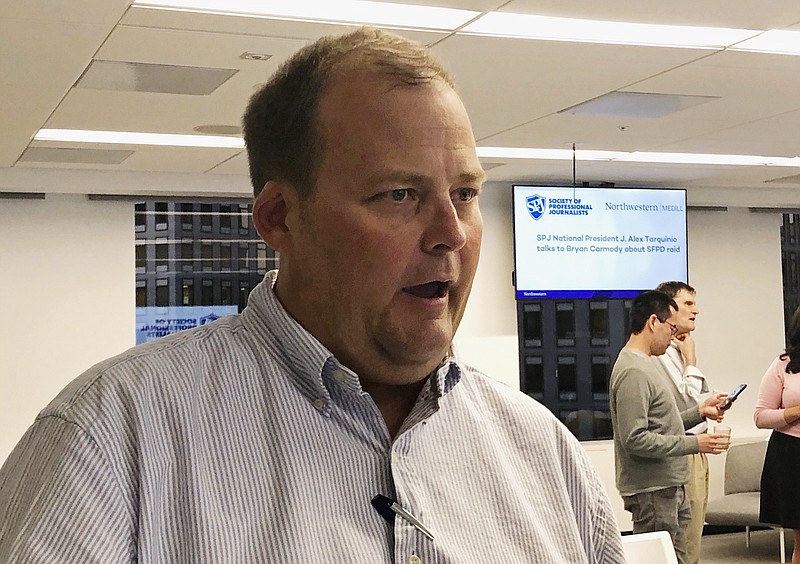SAN FRANCISCO (AP) — San Francisco police have acknowledged the need to uphold press protections as part of a settlement with a freelance journalist whose home and office were raided by police a year ago in a bid to root out a confidential source.
Police seized the computers, phones and cameras of journalist Bryan Carmody in 2019 despite a California shield law that specifically protects journalists from such searches. Five different San Francisco judges authorized the searches, although the approvals were eventually squashed and nullified.
The Board of Supervisors unanimously approved in March a payout of $369,000 to Carmody, calling the raids a shameful moment for the city.
As part of the settlement, police agreed to send a “department bulletin” informing employees of journalist protections. The department said it would also revise orders regarding subpoenas, including ones for information in the possession of a journalist.
“The city’s agreement to these terms means that all law enforcement employees are to be properly trained on California’s Shield Law and the procedures necessary to protect the rights of a free press to report on government actions without fear of unconstitutional surveillance or interference,” Ben Berkowitz, one of Carmody’s attorneys, said Tuesday.
San Francisco police and the city attorney’s office did not immediately respond to requests for more details and comment.
Police Chief William Scott initially defended the searches, saying Carmody had “crossed the line” and conspired with police employees to steal a report into the sudden death of the city’s former public defender, Jeff Adachi. Days later, Scott acknowledged the searches were probably illegal and apologized.
Mayor London Breed also defended the searches before backtracking amid growing outrage.
Adachi had adversarial relations with police, and the leak of the police report to Carmody detailing the circumstances around his February 2019 death was considered an attempt by police to smear Adachi’s legacy. Outraged friends and family members demanded an investigation of the leak, which led to the seizure of Carmody’s property.
Carmody has worked for decades as a freelance journalist or stringer, selling video and interview footage to news outlets. He carries a press pass issued by the San Francisco Police Department and has said he did not pay for the police report, which he sold as part of a package including video and photos to media outlets.

